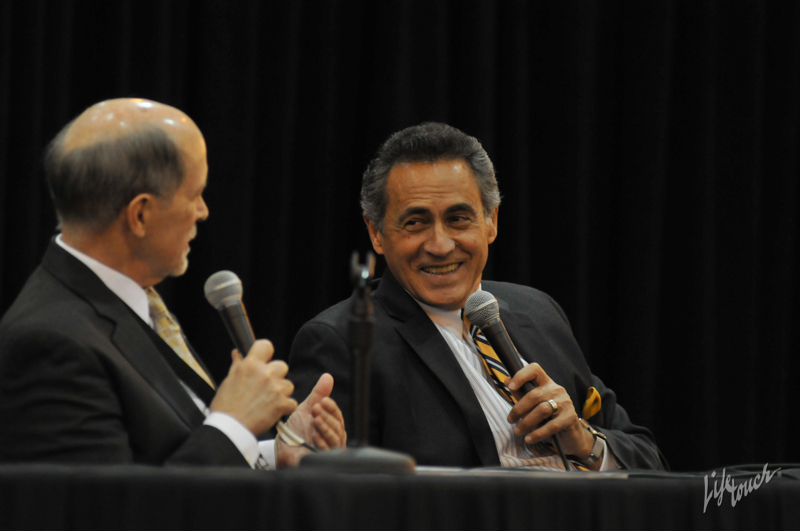With a new administration in Washington, attendees gained updates and insights into scenarios including potential budget cuts, the expansion of charter schools, reforms to the tax code and initiatives that provide parents with more choice in where their children attend schools.
In a congenial Thought Leader debate at the AASA national conference Friday between AASA Executive Director Dan Domenech and his counterpart, Tom Gentzel, of National School Boards Association, both agreed it has never been more important to speak out on the value of public education.
Neither would bet on where education falls in President Trump’s ambitious list of priorities. His desire to increase the defense budget by 10 percent could spell trouble for the education budget. “The money has to come from somewhere,” Domenech said.
Gentzel tempered the possibility of a worst-case scenario, saying “The administration proposes the budget, but Congress disposes. “On a philosophical level, there may be widespread agreement that the federal government has grown too large, but Gentzel believes members of Congress will be less likely to favor budget cuts, especially those that impact their own district.
Parental choice got a remarkable boost in Arizona, Domenech said. From his understanding, parents will receive a credit card with $5,000 that they can spend to send their child to public, private or religious school or to home-school their child. “It’s effectively the same as a voucher,” he said.
Oklahoma is looking at similar legislation.
These troubling trends could strain district budgets and the quality of education that children receive. Furthermore, there is the issue of accountability for schools and parents. They wonder whether fraud will become a problem.
Parents may treat this money as their own to spend, but these dollars are actually taxpayer dollars – they’re your money and mine,” Gentzel said. “Our argument is that any of these dollars need to be fully accountable. … The books need to be open so that we can see that it is spent on education. The potential for fraud is significant. “
Superintendents must approach discussions with legislators and speak from their unique role as a representative of education, Gentzel said. Do not make this political. Speak about the impact at the local level.
As bipartisan associations, Domenech said the focus of discussions is to inform others about the impact of policies and funding on public education. Agendas should focus on that, not on personalities or political parties.
“Whatever discussion comes forth, it cannot be couched in terms that public education is a failure,” said Gentzel at Friday’s Thought Leader session, “because it isn’t a failure.”
(By Liz Griffin, senior reporter for Conference Daily Online)

